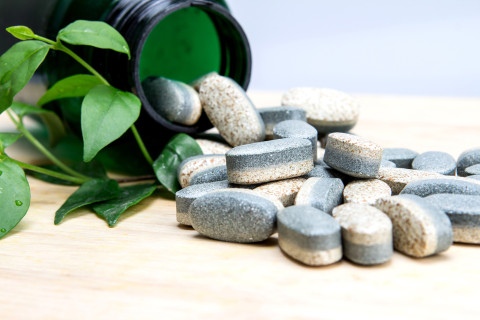The PhD thesis of Frank Adusei-Mensah,PhD, provides insights into toxicological surveillance and safety profile of commonly used herbal medicinal products (HMPs) in Kumasi metropolis of Ghana. There were HMPs available that could pose cancer and organ health risks to consumers especially in long-term exposure. The public examination will be held in English at Kuopio Campus and online on 17 September 2020 at 12 noon.
The use of plant-based systems in health care is a globally known practice
Plants produce secondary metabolites, which compounds have been harnessed for various purposes including control of different human diseases and for the discovery and development of pharmaceutical drugs. Despite the natural source of plant-based medicines and the long historical background, regular surveillance and continuous evaluation are critical for safe administration of plant-based medicine in humans. The present study evaluated post-market safety and profiled toxicity of commonly used polyherbal mixtures against malaria, diabetes and hypertension in the Kumasi metropolis of Ghana.
Safety data on most polyherbal mixtures on the Ghanaian market is lacking
The multidisciplinary study used in-depth qualitative interviews to obtain field reports of herbal medicine consumers on HMPs´ safety. Selected HMPs, HPA, HPB, HPC, HPD, HPE and HPF, were evaluated for heavy metal and pesticide contamination. The herbal products were wet-acid digested and the evaluations were done using inductively coupled plasma mass spectrometry (ICP-MS) for metal analysis and cold vapour atomic adsorption spectrometry (CV-AAS) for mercury analysis. Pesticides were extracted, purified and the analysis was carried out with gas chromatography coupled mass spectrometry. The three selected herbal products against malaria (HPA, HPB and HPC) were further evaluated in a 30-day in vivo sub-chronic toxicity study using OECD 407 continuous dose method in Sprague-Dawley rats.
Proper use of herbal medicinal products is questionable
Dosage concerns and failure of consumers to report usage and adverse effects to physicians were observed. Occurrence of adverse effects among consumers of HMPs was generally low and not severe. Consumers’ shyness and fear of being condemned by general practitioners (GPs) were identified, as well as the GP’s failure to request for such information during the hospital visits of the consumers.
Chemical analyses revealed heavy metal and pesticide contamination
Chronic exposure to the studied HMPs (C, E and F) were observed to pose health risk for adults and children (total hazard index ˃1) due to heavy metal and pesticide overexposure. Children exposed to HPF had higher health risks than adults due to pesticides and heavy metal overexposure. Children also were at the increased cancer risk (1.01 x 10-3 compared to the reference value of 1x10-4). High levels of pirimiphos-methyl were observed in HPE. This predisposes to chronic pirimiphos-methyl exposure and may have impact on health.
In Kumasi, Ghana there are HMPs available that could have adverse effects on various organs and increase the risk of cancer
In 30-day in vivo toxicity study for all the studied products signs of moderate liver, heart, lungs and kidney toxicities were revealed at almost all dose levels. Heavy metal and pesticide contamination may account for the observed signs of organ toxicities in rats. On the contrary, in HPA and HPC rat groups liver amelioration was indicated by low albumin levels, liver histology sections and by statistically significant low ASAT and low ALAT levels. This observation suggests the presence of component(s) with liver amelioration effects, which finding is supported by literature.
In conclusion, results from the present study revealed that in Ghana there are HMPs available in a market that could pose cancer and organ health risks to consumers especially in long-term exposure. Further research and the need for intervention by relevant regulatory authorities is encouraged for the provision and administration of safe herbal medicinal products in the country.
The doctoral dissertation of Frank Adusei-Mensah, PhD, entitled Toxicological Surveillance and Safety Profile of Commonly Used Herbal Medicinal Products in Kumasi Metropolis of Ghana, will be examined at the Faculty of Health Sciences. The Opponent in the public examination will be Professor Emeritus Atso Raasmaja of the University of Helsinki, and the Custos will be Professor Jussi Kauhanen of the University of Eastern Finland.
Photo available for download at https://mediabank.uef.fi/A/UEF+Media+Bank/37736?encoding=UTF-8
